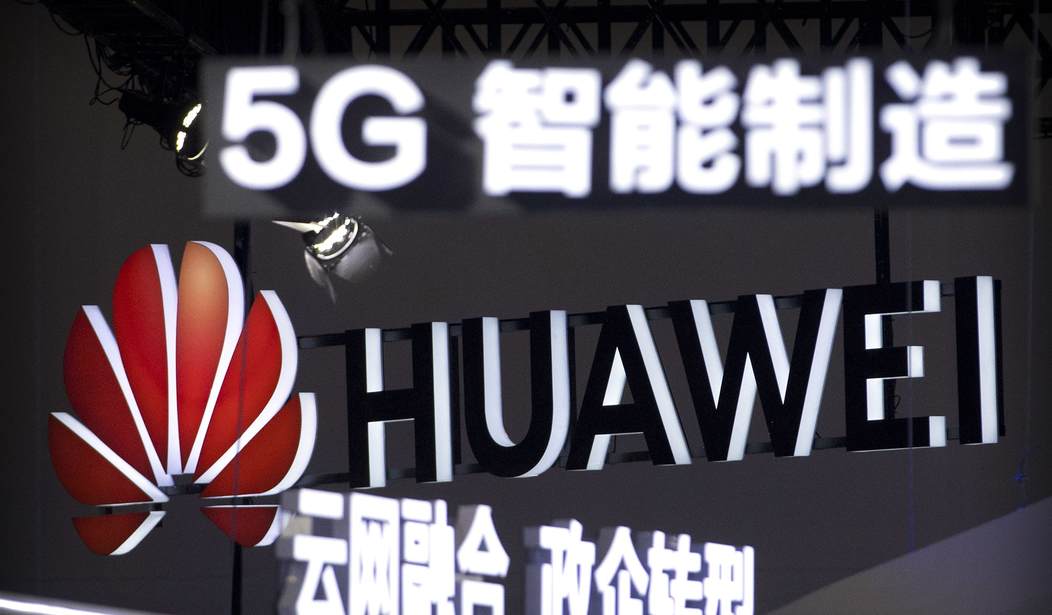Ajit Pai, chairman of the Federal Communications Commission (FCC), has been a one-man wrecking machine to China’s plans to leapfrog U.S. military and technological superiority by becoming the first to operationalize 5G. Now, however, Beijing is fighting back with delay tactics which, if not handled properly, can lead to China pulling a fast one on the FCC and, by default, America’s national security.
For those who aren’t familiar, 5G is the next-generation wireless network that will bring download and processing speeds to just a fraction of what they are currently. China has seen the new technology as a way to tap into the infrastructure through which all information will soon flow. It has invested more than $400 billion to develop 5G because it knows that succeeding in this space will allow it to uncover sensitive information, like trade and military secrets and more intellectual property blueprints than ever before.
China is already operating far ahead of schedule. It has already launched 126,000 base stations, with 400,000 more expected to be deployed this year. Its companies play a major role in 5G around the world.
Not surprisingly, analyses have found that they have bugged their devices with backdoors that can give the communist regime access to what others are doing. In fact, a study from cybersecurity research firm Finite State found that 55-percent of the equipment produced by China’s Huawei, the second biggest smartphone seller in the world, has at least one backdoor access point.
Ajit Pai recognizes China’s 5G plan for what it is: a major threat to national security, and he has acted.
First, he labeled Huawei, along with fellow telecommunications giant ZTE, as a national security risk to cut all funding they receive for communications infrastructure from the FCC’s $8.5 billion Universal Service Fund.
Recommended
Secondly, and most importantly, he announced his vision to have the U.S. excel in the 5G race itself by going toe-to-toe against China. He made public his intent to repurpose the C-Band – America’s top digital spectrum – by “the latter part” of 2020 so that America can build proper, effective 5G infrastructure – allowing it to beat the Chinese before they have complete operational control.
Both of Pai’s critical action items will allow the U.S. to take a big leap into this race and protect itself while becoming more competitive with the rest. But Pai faces determined resistance.
This week, Beijing and various business interests have undertaken attempts to delay the implementation of both of Pai’s goals in moves that will only make the prospect of an impending Chinese technological stranglehold even stronger.
On February 3, Huawei, one of China’s largest tech companies, asked the FCC not to finalize its designation of the company as a national security risk. This move follows a lawsuit filed by the company against the FCC in December, in which both parties must submit briefs by February 26.
Why is this Chinese tech giant protesting? Surely, it’s not because the company founded by a former technician for the People’s Liberation Army, which has received tens of billions in subsidies from the communist regime, thinks it can make a case for innocence. No, the real reason is that its protests will breed significant delays to Pai’s agenda that benefit its operations. The longer its lawsuit drags on, the more in U.S. government subsidies it can reap to fuel its anti-American agenda and the more devices Huawei can sell in the United States.
China also want to delay Pai’s C-band auction as long as possible. It’s a crucial step the U.S. must take to bring 5G infrastructure in the country past the conceptual phase.
Unfortunately, thanks to arguments made by companies fearful of the competition 5G will bring to their businesses, some Members of Congress are pushing ideas to the FCC that will do just that. They are trying to delay the process by convincing the FCC against having an accelerated auction that pays market rates to companies who surrender their spectrum space.
Failing to pay market rates will breed significant litigation proceedings that will likely make Pai’s auction, and – by default – 5G in America, occur in the latter part of the decade rather than the latter part of 2020, all while China continues to get ahead.
The White House is already dovetailing off Pai’s leadership by announcing progress on other aspects of the 5G race in the U.S. For example, on February 4, the Wall Street Journal reported that, to reduce or eliminate the use of Huawei equipment, “the White House is working with U.S. technology companies to create advanced software for next-generation 5G telecommunications networks.” All of this is great news, but none of it will be effective without the implementation of Pai’s core objectives.

























Join the conversation as a VIP Member